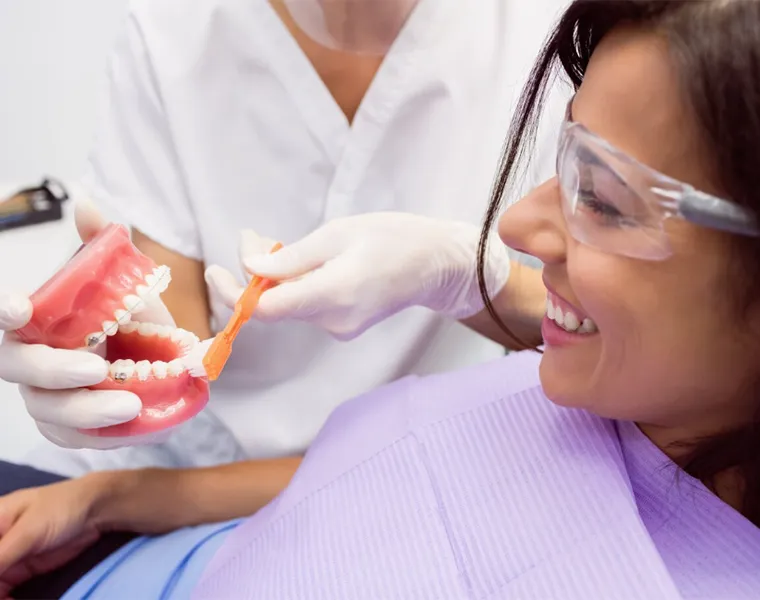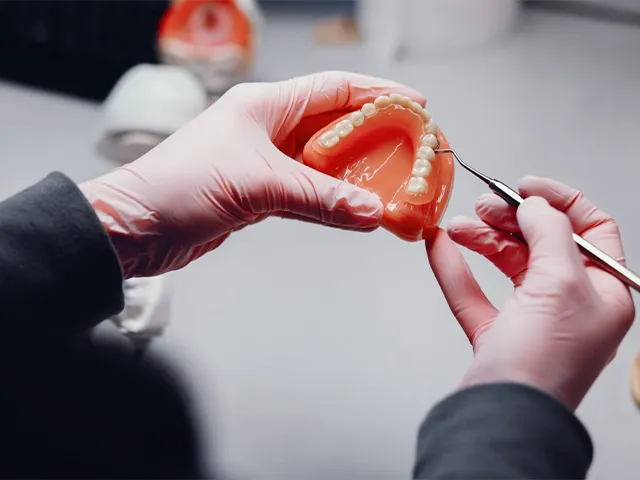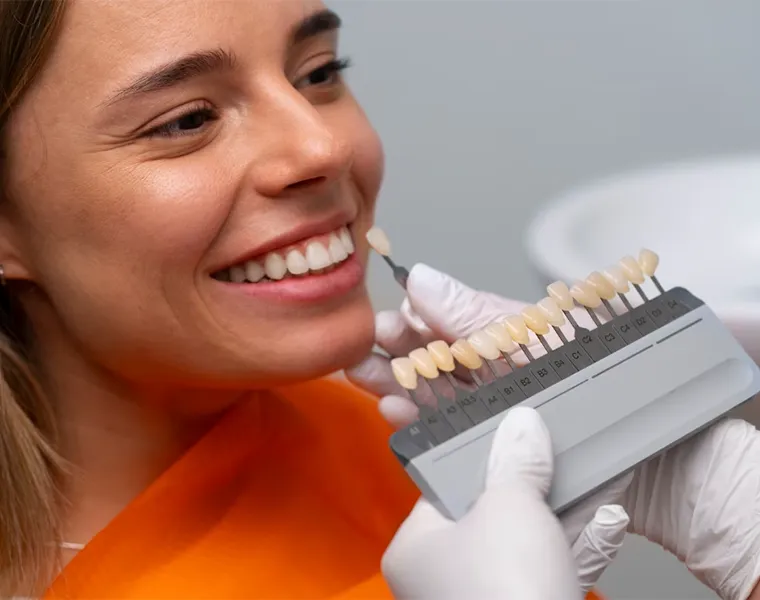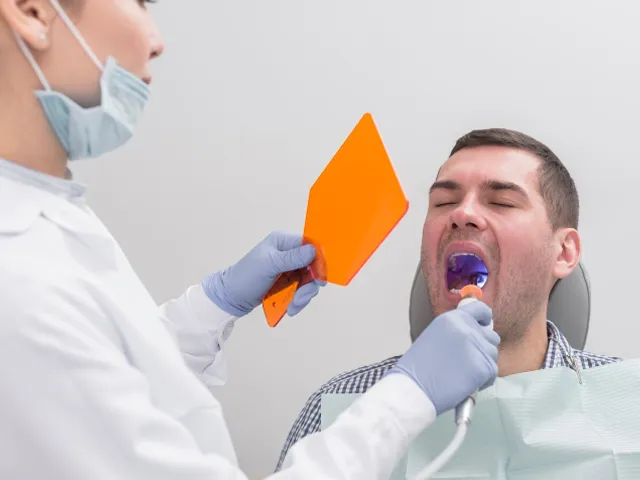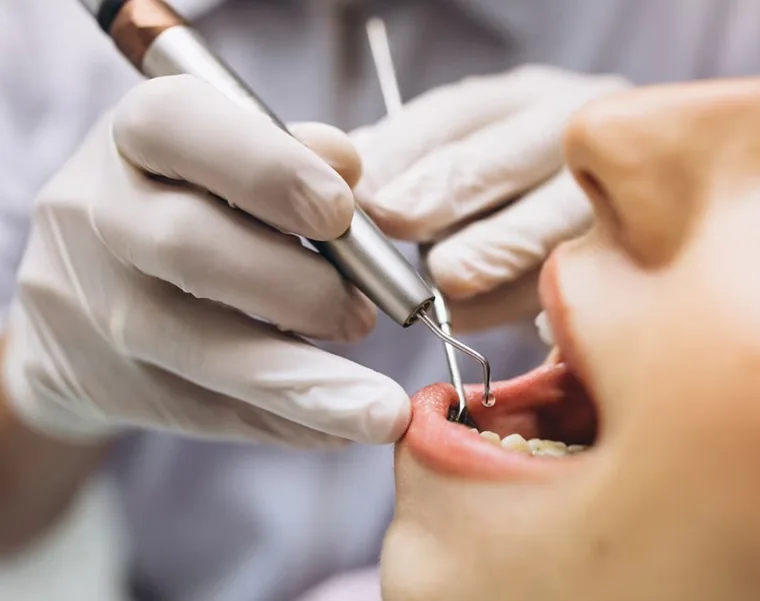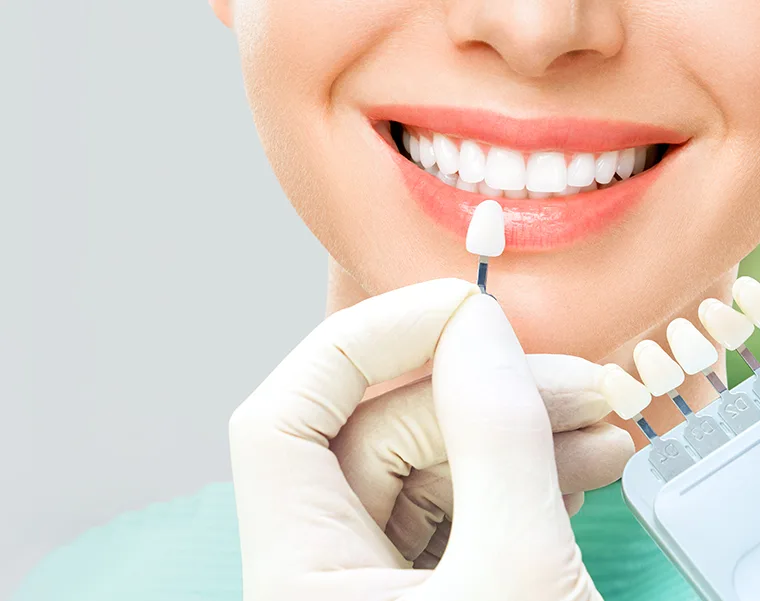What helps gum swelling? Salt water mouthwash can help relieve the infection and reduce swelling. Paying attention to oral hygiene is essential to relieve swelling in a short time. Gentle brushing with warm water prevents irritation and provides relief. Cleaning between teeth with dental floss removes plaque and bacteria. Also, a soft-bristled brush that does not damage the gums should be preferred. In order to permanently relieve this swelling, the cause of the swelling should be determined by a dentist.
What helps gum swelling? It may be necessary to consult a dentist for a correct treatment. Flossing removes bacteria between the teeth. Antiseptic mouthwashes prevent the spread of germs. Antibiotics may be needed if the swelling is caused by a tooth abscess. Herbal teas can also provide a soothing effect. For example, chamomile tea is useful for inflammation. Avoiding sugary foods in the diet can reduce the risk of swelling. Drinking plenty of water flushes harmful bacteria from the mouth. If swelling persists, a specialist physician control is essential.
What Causes Gum Swelling?
Gum swelling is a common problem in oral and dental health. This condition usually occurs for various reasons such as inflammation, infection, trauma or improper oral care habits. Without properly identifying the cause of the swelling, it can be difficult to treat.
Poor oral hygiene is the most common cause of gum disease. Plaque and tartar accumulated between the teeth cause irritation of the gums over time. This is especially common in cases of swollen gums with caries. Caries can lead to infection in the gums, causing swelling and sensitivity.
Braces can cause pressure and irritation in the area around the teeth and gums. Food debris and bacteria that accumulate around the braces can cause the gums to swell. In this case, swelling can be prevented by regular cleaning and using products recommended by the dentist.
Toothbrush bristles, improper brushing techniques or injury to the gums while eating can also cause swelling. This type of trauma can usually present with painless gum swelling. However, irritation can develop into infection over time.
Gum infections and dental abscesses are among the most serious causes of swelling. Diabetes, immune system diseases or vitamin deficiencies can also negatively affect gum health. Especially in immunocompromised individuals, oral health problems are observed more frequently.

Medicine for Swollen Gums
Treatment for swollen gums varies depending on the cause of the swelling and in some cases medication may be required. The dentist will first examine the source of the swelling to determine the appropriate treatment method. Here are the medications and other treatment methods used in these cases:
- Antiseptic Mouthwashes: Mouthwash solutions with antiseptic ingredients reduce bacteria in the gums and relieve swelling.
- Painkillers: Over-the-counter painkillers such as ibuprofen or paracetamol can reduce the pain that comes with swollen gums.
- Antibiotics: Your dentist may prescribe antibiotics if the swelling is caused by infection.
- Corticosteroid Creams: In cases of severe inflammation, steroid medications applied to the gums may be recommended.
When wisdom teeth erupt, pressure and inflammation may occur in the gums. In case ofswelling of the wisdom gums, painkillers and antiseptic mouthwashes can be used. If the infection is severe, antibiotic treatment may be necessary.
How does a swollen palate go away? Swollen palate is usually caused by trauma, infection or fungal infections in the mouth. Antifungal medicines, antiseptic mouthwashes and, if necessary, painkillers can be effective for this type of swelling. Drinking plenty of water and avoiding hard foods also speeds up the process.
Gum recession is a chronic condition and requires the intervention of a dentist rather than medication. However, special toothpastes and antiseptic solutions that strengthen the gums can be used. The dentist should be consulted before such problems progress.

What is Good for Swollen Back Gums?
Swollen back gums usually occur after a lack of oral hygiene, infection, trauma or dental treatments. This condition can cause both pain and discomfort when chewing. Depending on the source of the swelling, home remedies or intervention by a dentist may be needed. Some applications that can be good for swollen gums are as follows:
- Salt water mouthwash: A mouthwash prepared by adding a teaspoon of salt to a glass of warm water relieves infection and reduces swelling.
- Antiseptic mouthwashes: Antiseptic solutions sold in pharmacies support gum health by killing bacteria.
- Cold compress: An ice pack applied externally to the swollen area can reduce swelling and pain.
If the swelling is caused by infection or if the symptoms persist for a long time, a dental check-up is essential. Especially in the case of swollen gums after a filling, specialist support is necessary.
In cases such asswollen gums after a filling, the instructions given by the dentist should be carefully followed. Back gum swelling can be controlled with proper oral hygiene and early intervention. However, in cases of severe pain and swelling, specialist help should not be neglected.
Swollen Gums After Filling
Gum swelling after a filling is usually caused by irritation or inflammation of the gum tissue around the filling. Gingival sensitivity is more common, especially after fillings in the upper teeth. The reason for this is the discomfort caused by the materials used during the filling or the mechanical pressure on the gums during the application.
Upper or lower gingival swelling after filling may occur for the following reasons after filling:
- Mechanical Irritation: The pressure of the instruments used during the filling process on the gums can cause irritation.
- Bacterial Infection: If the filling area is not cleaned sufficiently, the accumulation of bacteria can cause swelling.
- Incorrectly Fitting Filling: If the filling is not fully compatible with the tooth, it can cause swelling by creating pressure on the gums.
- Chemical Reactions: Sensitivity of the gums to the filling material can cause swelling.
Various methods can be used to alleviate gum swelling after filling. Gargling with warm salt water is an effective method to prevent infections and reduce swelling. Antiseptic oral care products recommended by your dentist can be used to support gum health.
Gum Swelling of the Wisdom Tooth
Gum swelling and bleeding during the eruption of wisdom teeth is a common problem. This condition usually occurs due to irritation, pressure or infection of the gum in the area where the tooth will erupt. Plaque and bacteria accumulated around the wisdom tooth trying to erupt can trigger infection, causing both swelling and bleeding. These symptoms can be exacerbated, especially if the jaw is narrow or the tooth is erupting in the wrong position.
In such cases, salt water mouthwash is an effective method to reduce the risk of infection and provide relief. Regular gargling with warm salt water relieves swelling and promotes gum health. Antiseptic mouthwashes can also control the infection. It is important to avoid hard foods and pay attention to oral hygiene to prevent increased bleeding.
If gum swelling and bleeding do not go away within a few days, a dentist’s check-up is absolutely necessary. The dentist may consider tooth extraction or other treatment if necessary. Early intervention is vital to prevent more serious infections and complications.
Libredent is an Ankara dental clinic where many oral and dental health applications are performed. You can contact us for your needs and requests regarding oral and dental health/aesthetics.


